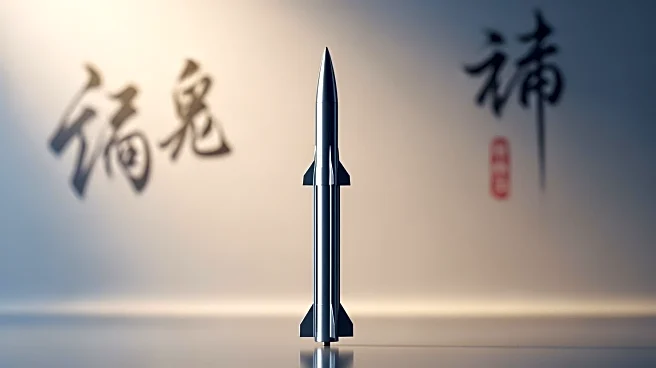What's Happening?
Iran is reportedly rebuilding its ballistic missile program with the help of Chinese suppliers, despite the reimposition of United Nations sanctions. European intelligence sources have identified shipments
of sodium perchlorate, a key component in missile propellant, arriving from China to Iran. These shipments are believed to be part of Iran's efforts to replenish its missile stockpile following a conflict with Israel. The reimposed sanctions, triggered by breaches of the 2015 Joint Comprehensive Plan of Action, prohibit activities related to ballistic missiles capable of delivering nuclear weapons.
Why It's Important?
This development highlights the ongoing geopolitical tensions surrounding Iran's missile capabilities and the challenges in enforcing international sanctions. The involvement of Chinese suppliers underscores the complexities of global supply chains and the potential for countries to circumvent sanctions. For the U.S. and its allies, this situation presents a diplomatic and security challenge, as it may necessitate further measures to prevent the proliferation of missile technology. The situation also reflects broader regional security dynamics, with potential implications for stability in the Middle East.
What's Next?
The international community, particularly the U.S. and its allies, may need to consider additional diplomatic or economic measures to address the situation. This could involve increased scrutiny of shipping routes and suppliers involved in the missile program. The ongoing developments may also prompt further discussions within the United Nations regarding the enforcement of sanctions and the role of member states in preventing the proliferation of missile technology.








